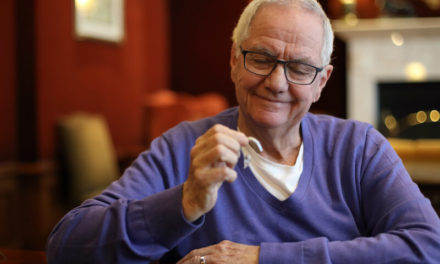You have become used to living with tinnitus and have modified your lifestyle accordingly. To help you block out the constant ringing, you always leave the TV on. You hate going out for a happy hour with coworkers since the loud music at the bar makes your tinnitus worse for days. You frequently visit to test out new methods and cures. Over time, you just learn to live with your tinnitus.
The main reason is that there is no treatment for tinnitus. Even so, they might be getting close. We may be getting closer to a long-lasting and potent treatment for tinnitus, according to study results published in PLOS Biology. Hearing aids can be very beneficial in the meantime.
IT IS NOT KNOWN WHAT EXACTLY CAUSES TINNITUS
An individual who is dealing with tinnitus will hear ringing, buzzing, or other noises that are not coming from outside. Millions of people deal with tinnitus on some level because it is so widespread.
Additionally, it is not a cause in and of itself but rather a symptom. In other words, there is an underlying problem that causes the symptoms of tinnitus. One of the reasons a cure for tinnitus is so difficult to find is because its root causes might be difficult to identify. There are numerous factors that might cause tinnitus to develop.
Even the link between hearing loss and tinnitus is hazy. There is a link, for sure, but not everyone with tinnitus also has hearing loss (and vice versa).
EasyCharge Rechargeable Hearing Aids
Catch up on everything you love with EasyCharge hearing aids. One charge is all you need.

Receiver-In-Canal Hearing Aids
Natural sound, less feedback, and long time wearing comfort.
AN UPDATED OFFENDER: INFLAMMATION
An investigation that was written up in PLOS Biology was led by Dr. Shaowen Bao, an associate professor at the Arizona College of Medicine in Tucson. Dr. Bao conducted tests on mice that developed tinnitus brought on by loud noises. Inflammation appears to be the cause of tinnitus, according to what she and her team found.
Tests and scans on these mice revealed that inflammation was present in the parts of the brain that control hearing. This suggests that there is harm resulting from noise-induced hearing loss that we do not currently comprehend because inflammation is the body’s reaction to injury.
But this understanding of inflammation also makes new types of treatment conceivable. since we are normally familiar with how to treat inflammation. When the mice were given medications that reduced inflammation, the mice’s tinnitus problems disappeared. Or, at the very least, such signs were no longer discernible.
DOES THIS INDICATE THAT TINNITUS IS TREATABLE WITH A PILL?
This research does seem to imply that there might ultimately be a medication for tinnitus. Imagine being able to take a tablet in the morning and keeping your tinnitus at bay rather than investing in these many coping techniques.
That is undoubtedly the objective, however, are many significant obstacles along the way:
- First, these experiments were done on mice. And there’s a lot to do before this particular approach is deemed safe and approved for humans.
- It may take some time to identify specific side effects, difficulties, or problems connected to these particular inflammation-blocking medications; each novel strategy needs to be demonstrated to be safe.
- It is difficult to say (at this time) whether all or even most tinnitus is linked to inflammation of some kind because not everyone’s tinnitus will be caused in the same way. So it can take some time until a tablet to treat tinnitus is developed. However, it’s not totally impossible. The likelihood that you will experience tinnitus today has significantly increased. Additionally, research is being done on a number of alternative tinnitus treatments. Every new finding and piece of information brings us one step closer to finding a treatment for tinnitus.
Bluetooth Hearing Aids
Turn your smartphone into a remote control.
DO YOU HAVE ANY OPTIONS?
The prospect of a distant medication may give you hope, but not necessarily relief, if you now experience a chronic buzzing or ringing in your ears. Even though they don’t necessarily “fix” the underlying problem, there are current treatments for tinnitus that can deliver effective outcomes.
Some methods include using noise-canceling equipment or cognitive therapy designed to assist you in ignoring the sounds associated with your tinnitus. Hearing aids provide comfort for a lot of people as well. Even though treatment may not be available for several years, you don’t have to cope with tinnitus by yourself or without help. You may spend more time doing the things you enjoy and less time worrying about the buzzing or ringing in your ears by getting an effective treatment.






